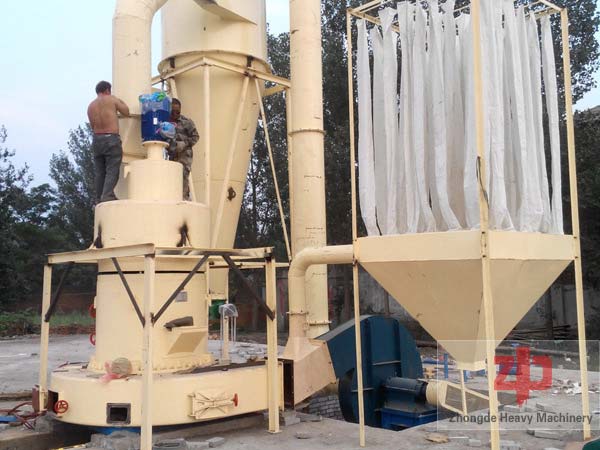Raymond mill is widely applied to the high-fine powder processing of the over three hundred kinds of non-flammable and non-explosive materials whose Moh’s hardness is not greater than 9.3 and the humidity is less than 6% in the industries of mining, chemical and construction and other industries. These materials include barite, calcite, feldspar, talc, marble, limestone, dolomite, fluorite, lime, activated clay, activated carbon, bentonite, kaolin, cement, phosphate rock, gypsum, glass, insulation materials etc. The particle size of the finished products can be adjusted in the range of 80 -325 mesh and the granularity of part of the materials can be up to 2000 mesh.
The structural characteristics:

The factors that affect the production capacity of Raymond mill:
The hardness of materials. If the material is harder, it will be more difficult to grindand the wear and tear on the equipment will be more serious. If the grinding speed of the Raymond mill is slow, the production capacity will be small. Humidity of materials, namely, if the materials contain more moisture, the adhesion of materials in the Raymond mill is easy to emerge, which will make it easy to cause clogging in the handling process of materials, reducing the grinding capacity of the Raymond mill. The required fineness of materials. If the requirement of the fineness is higher, the finer the materials will be and the production capacity of the Raymond mill will be smaller.